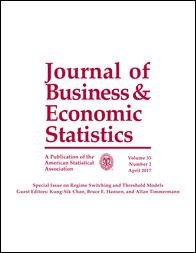
Chen, Y., Grith, M. and Lai, \HannahL.H.\ (2025). Neural Tangent Kernel in Implied Volatility Forecasting: A Nonlinear Functional Autoregression Approach Journal of Business and Economic Statistics, :.
-
Affiliated authorMaria Grith
-
Publication year2025
-
JournalJournal of Business and Economic Statistics
Forecasting implied volatility across different levels of moneyness and maturity is crucial yet challenging due to the high dimensionality of the Implied Volatility Surface (IVS) and the nonlinearity that characterizes its temporal dependence. We adopt a Nonlinear Functional Autoregressive (NFAR) framework to a sequence of IVS and employ neural networks that admit a Neural Tangent Kernel (NTK) parameterization to capture nonlinear interactions between surfaces. We illustrate the theoretical and numerical advantages of the proposed functional NTK (fNTK) estimator and establish a link to functional kernel regression. Our empirical analysis includes over 6 million European call and put options from the S\&P 500 Index, covering January 2009 to December 2021. The results confirm the superior forecasting accuracy of the fNTK across different time horizons. When applied to short delta-neutral straddle trading, the fNTK achieves a Sharpe ratio ranging from 1.30 to 1.83 on a weekly to monthly basis, translating to 90% to 675% relative improvement in mean returns compared to forecasts based on functional Random Walk model.